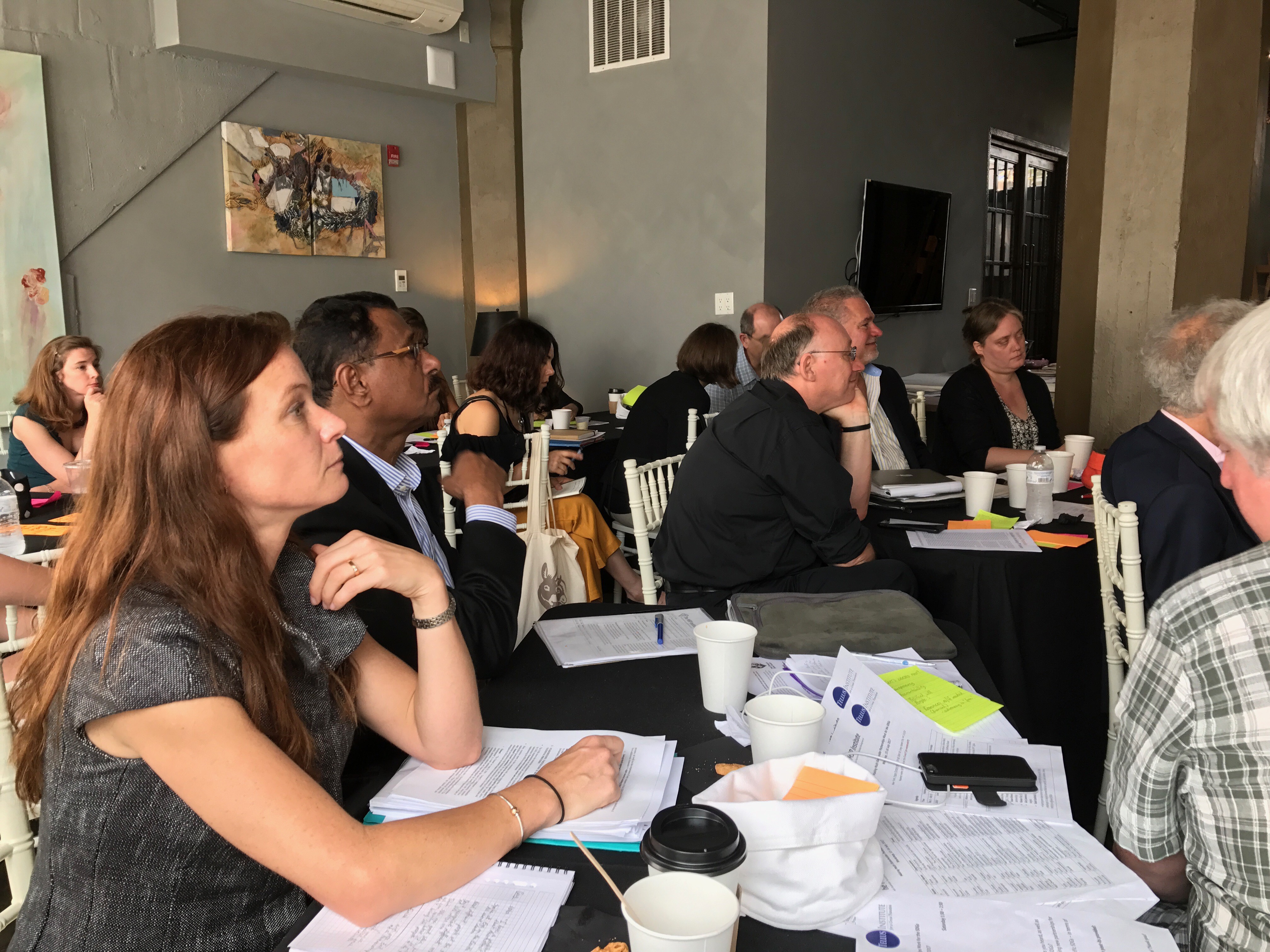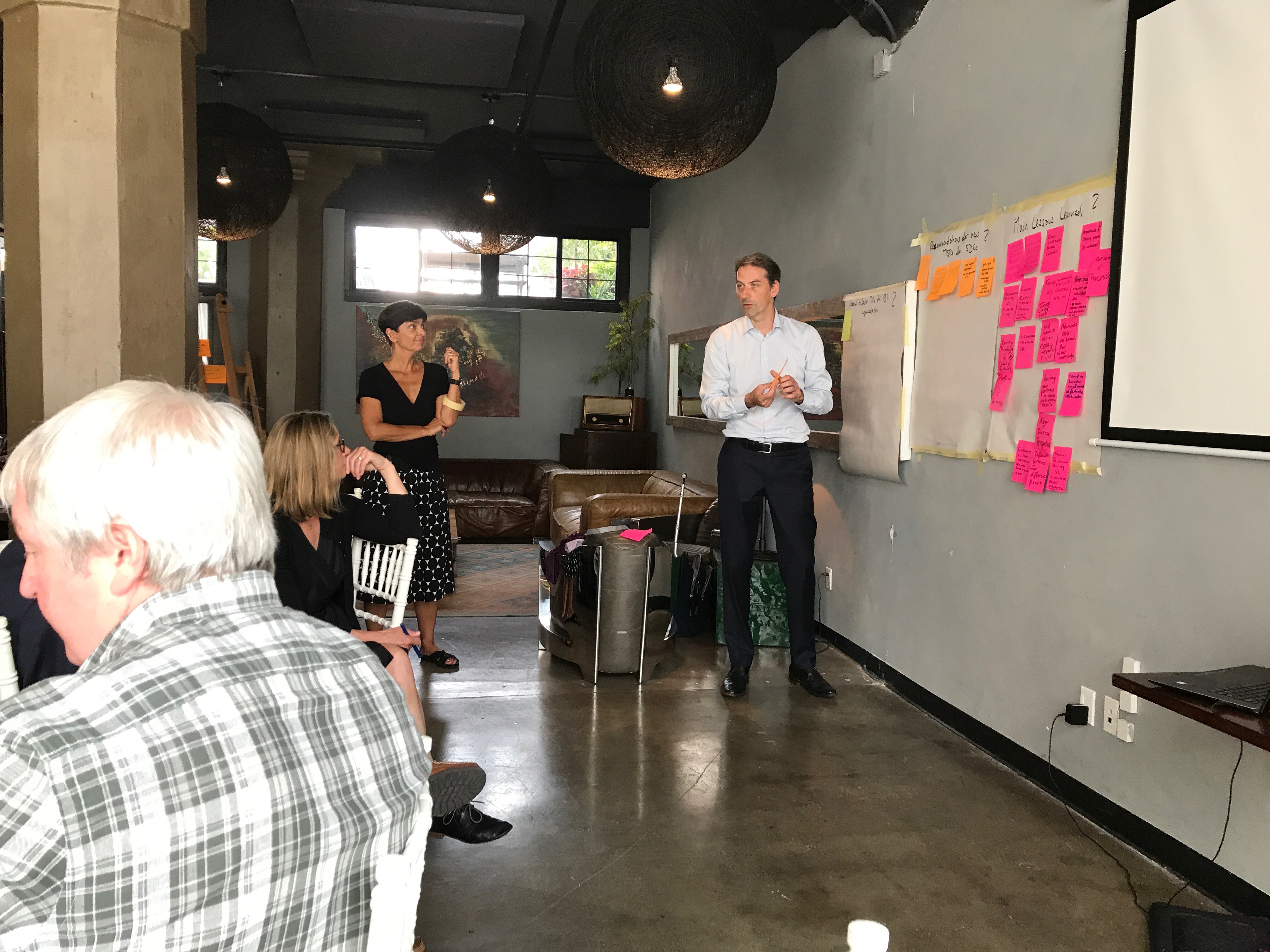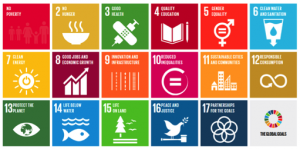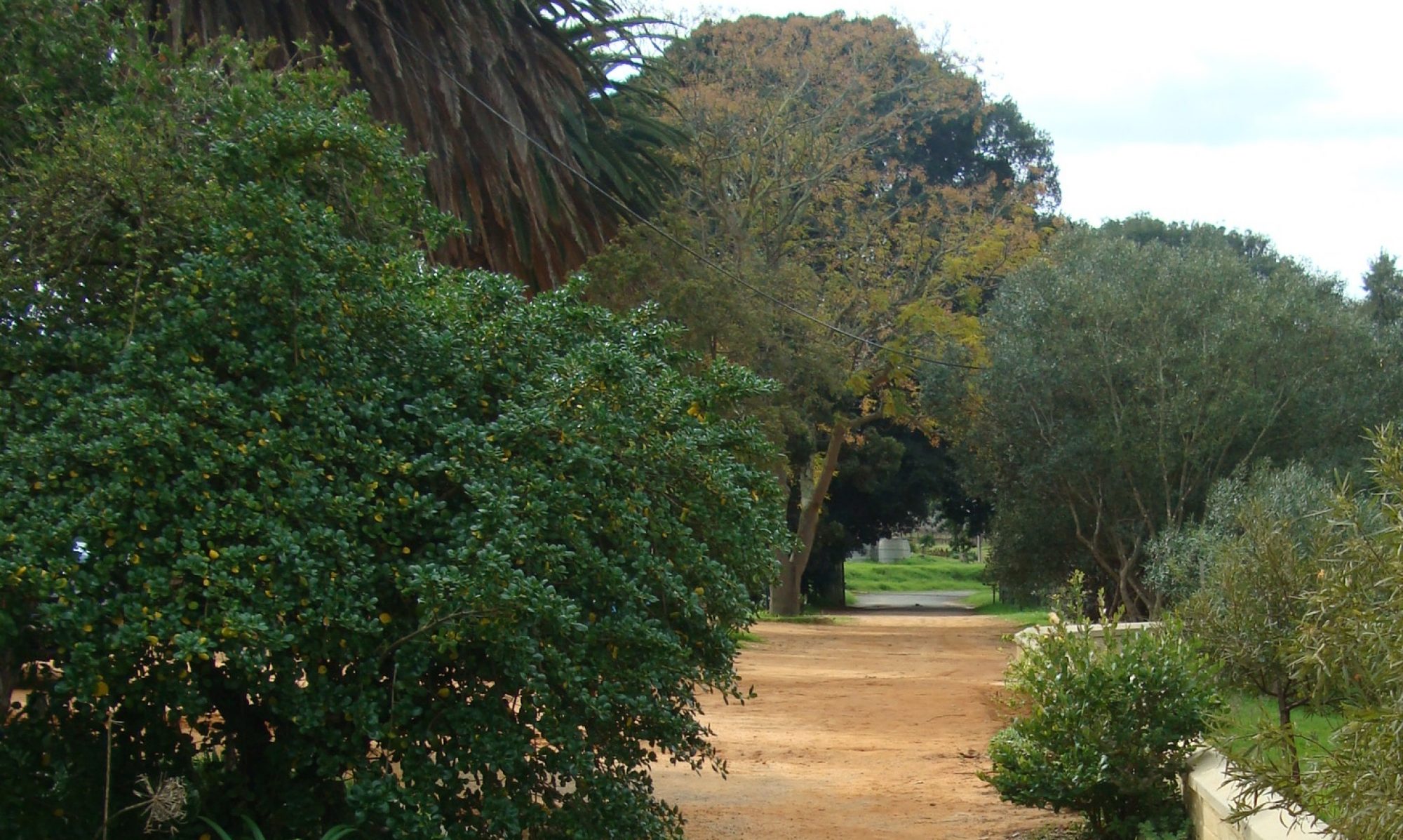Making Multi-stakeholder Partnerships Work for the Sustainable Development Goals
A Workshop on the Margins of the UN High Level Political Forum
New York, July 15+16, 2017
Held at the Paper Factory Hotel in Long Island City
Organized by the MSP Institute and the Tellus Institute
One and a half days of focused presentations and lively interaction brought together people and organisations working in and with multi-stakeholder partnerships that contribute to the SDGs to share lessons learned. We discussed a range of SDGs and cross-cutting aspects of partnerships, as well as a process to develop an MSP Charter.
Click here for more information: workshop summary, agenda, participants list, presentations.

The workshop:
- Provided space for partnerships to share their experiences and lessons learnt, helping to build a well-informed community of practice
- Started to collate a set of principles that multi-stakeholder partnerships themselves articulate as guidance for how they work, and discussed a possible MSP Charter
- Informed the debate about multi-stakeholder partnerships for sustainable development at the UN

Background
The UN has a long history of involvement with stakeholders and multi-stakeholder partnerships (MSPs) for sustainable development.
The Rio Earth Summit (1992) integrated 9 chapters on Major Groups (stakeholders) into Agenda 21. And at the World Summit on Sustainable Development (WSSD, 2002) focussed on both policy commitments and MSPs as a mechanism to help implement policy commitments. This was in part due to the fact that after Sept 11, 2001, no significant policy commitments were delivered from the negotiations. This contributed to a lack of clear focus for the multi-stakeholder partnerships.
A perceived failure to set up Guidelines and Criteria to deal with partnerships effectively in the wake of the Summit did not help to improve the standing, and understanding, of partnerships in UN processes. At the Rio+20 Summit (2012), it wasn’t partnerships that were included beyond the intergovernmental process and agreements but ‘voluntary initiatives’ as such, by individual organisations or coalitions. In 2014, the Small Island Developing States Accelerated Modalities of Action (Samoa Pathway) re-engaged in the discourse on MSPs and included strong reference to partnerships. The same is true for the SDGs and the 2030 Development Agenda, including Goal 17 with its reference to the global partnership on development, which for the Millennium Development Goals (MDGs) meant partnerships between governments. Finally, the Addis Ababa Action Agenda (AAAA) also promoted partnerships.
It is also important to note, and learn from, the history of how UN institutions and their procedures have dealt with Major Groups and with partnerships in the past: the UN Commission on Sustainable Development held multi-stakeholder dialogues on specific issues, and introduced Partnership Fairs to present MSP contributions. The Millennium Development Goals (MDGs) and processes afterwards led to the Annual Ministerial Review and the annual meeting under ECOSOC on partnerships for the MDGs as well as the creation of the UN Global Compact and the UN Partnerships Office.
The 2030 Agenda maintains partnerships as ‘a’ means of implementation (MoI), and the General Assembly (GA) resolution “towards global partnerships” provides a mandate to “discuss best practices and ways to improve (…) transparency, accountability and the sharing of experiences (…) the review and monitoring of those partnerships”; and to “develop (…) a common and systemic approach”.
The experience with MSPs over the last 15 years, and their involvement with the UN, has been mixed. The objective of this workshop is to help build a well-informed community of practice that can have a significant role in implementing the SDGs.
There is a need for space at the international level outside of the UN process where partnerships working towards the Sustainable Development Goals can meet to discuss their experiences and lessons learnt on building capacity and effective governance structures, managing financial and other risks, and creating useful and accountable monitoring mechanisms. There is a need for a process by which partnerships can start developing networks among themselves, creating safe spaces for open dialogue, articulating their principles of work and their aspirations, and thus helping to improve their delivery on the goals and targets agreed in the 2030 Agenda.
Inside the UN, in support of the work of the High-level Political Forum and the Voluntary National Reviews, the HLPF Partnership Exchange special event provides a space for enhancing the global partnership for sustainable development. The 2017 session will place a special focus on reviewing the work of multi-stakeholder partnerships and other voluntary initiatives in driving implementation of Sustainable Development Goals 1, 2, 3, 5, 9, 14 and 17.
SDGs under review in 2017
- Goal 1. End poverty in all its forms everywhere
- Goal 2. End hunger, achieve food security and improved nutrition and promote sustainable agriculture
- Goal 3. Ensure healthy lives and promote well-being for all at all ages
- Goal 5. Achieve gender equality and empower all women and girls
- Goal 9. Build resilient infrastructure, promote inclusive and sustainable industrialization and foster innovation
- Goal 14. Conserve and sustainably use the oceans, seas and marine resources for sustainable development

Workshop Organizers:
MSP Institute is passionate about high-quality multi-stakeholder processes (MSPs) for sustainable development. Meaningful participation, open dialogue and effective collaboration involving all sectors of societies will play a key role in achieving transformation towards sustainable development. MSP Institute brings knowledge, skills, experience and networks to processes of engagement, collaboration and learning at local, national and international levels, and advocates for investing in designing, facilitating and evaluating from processes at all levels. We also support and coach, develop and implement, study and build capacities on MSPs. MSP Institute is an international charitable association based in Berlin, Germany, established in March 2016, www.msp-institute.org.
Contact: Dr Minu Hemmati, minu.hemmati(at)msp-institute.org
Tellus Institute is a non-profit 501(c)(3) research and education organization based in the U.S. Founded in 1976, the Institute’s mission is to advance a global civilization of sustainability, equity, and well-being through research, education, and action. Tellus works at every geographic level – global, regional, national, local, and enterprise. Core programs include Integrated Scenarios, Sustainable Communities, and the Great Transition Initiative. Key achievements include publication of the widely cited Great Transition: The Promise and Lure of the Times Ahead, and development of integrated global scenarios used in UNEP Global Environment Outlook, IPCC, and Millennium Ecosystem Assessment. www.tellus.org
Contact: Felix Dodds, Tellus Institute, felix(at)felixdodds.net

